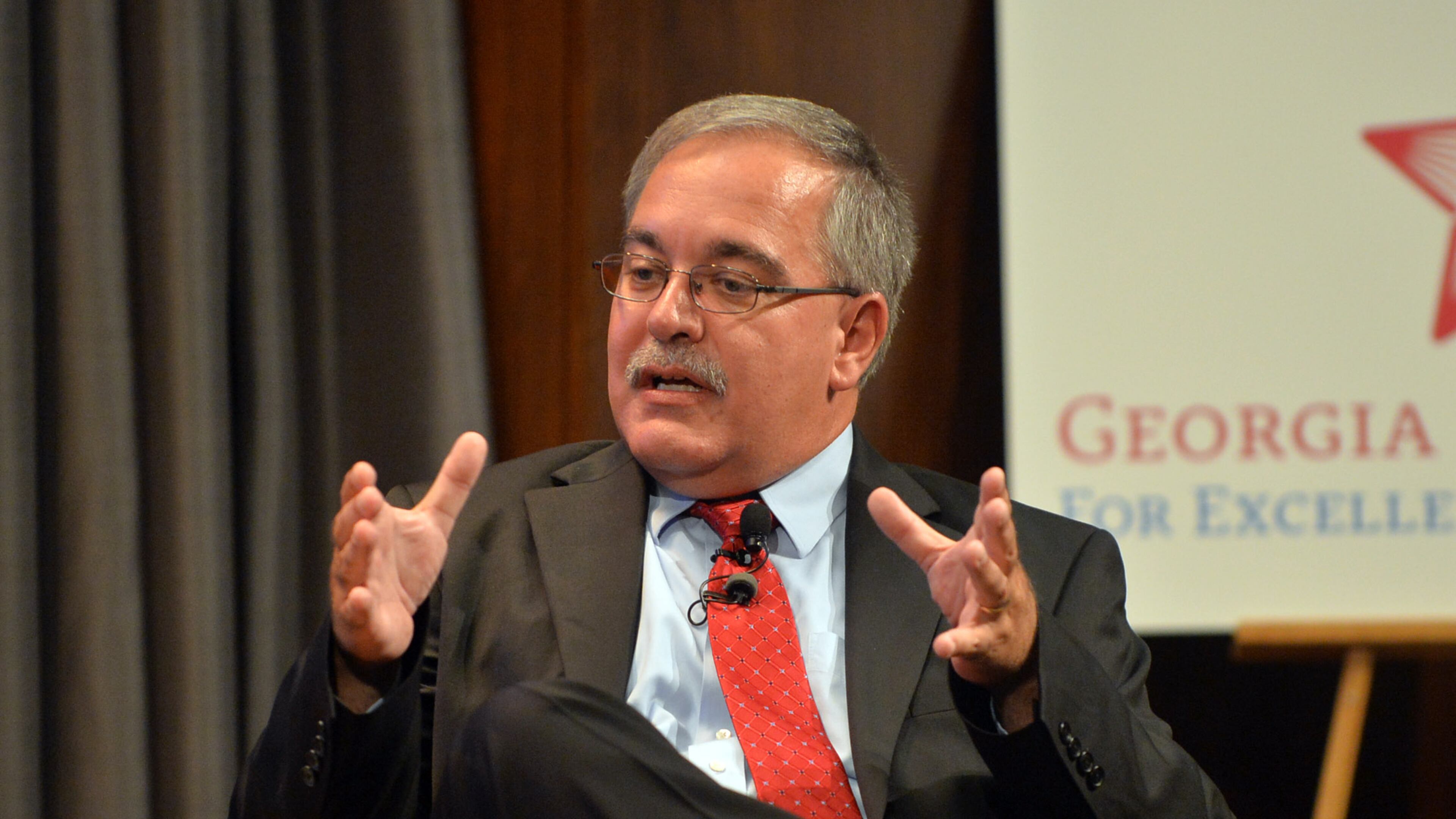Georgia school chief: Districts will have flexibility to address student mental health needs

State school Superintendent Richard Woods wanted to respond to a column this week by a Georgia school psychologist about the lack of attention to student mental health in Georgia's required federal accountability plan.
In his column, Matthew Vignieri, co-chair of the Advocacy Committee of the Georgia Association of School Psychologists, wrote: "Despite the federal government’s recognition of the positive impact that mental health services and school climate can have, the Georgia Department of Education’s current plan for implementing ESSA largely overlooks these critical aspects to student achievement."
Here is Woods' response to those concerns:
By Richard Woods
The staff and I at the Georgia Department of Education appreciate the thoughtful feedback we've received regarding Georgia's draft state plan for the Every Student Succeeds Act, and hope all invested parties will continue to share their input through the close of the public-comment period this Friday, July 14 (click here to read the plan and here to comment). I want to emphasize that the plan is truly still in draft form and we will work to analyze and incorporate the feedback we've received to the fullest extent possible.
In response to concerns about the plan’s emphasis on children’s mental health services, the following information may provide some valuable context.
First, it's important to know that the draft plan is a technical document that requires our responses to specific prompts from the U.S. Department of Education. The plan is an incredibly important document, but by its nature cannot capture all of the department's work and priorities. Through the draft ESSA plan and our own statewide strategic plan and goals, we've placed an emphasis on educating the whole child and offering flexibility and support to local school systems.
Second, in the process of developing our draft ESSA plan, we established an Education of the Whole Child working committee which worked to ensure an emphasis on well-rounded curriculum as well as the non-academic factors that impact student achievement (including mental health). That group is organizing a digital toolbox of evidence-based practices for districts and schools to utilize to support the whole child, and developing topic-specific guidance so districts and schools can leverage federal funds to address identified whole-child needs (including mental health training for adults who work with students) as well as supports for leveraging community mental health services for children.
In other words, when districts and schools engage their communities and there is a need for supports for mental health issues, districts and schools will have the flexibility to use federal resources to support this need.
Third, at the state level, we will continue to prioritize the crucial issue of children’s mental health. We work directly with the Georgia Department of Behavioral Health and Developmental Disabilities through its APEX Program which provides mental health services in schools. Additionally, we work with children’s mental health advocacy groups such as Georgia’s Voices for Children, the Georgia Family Connection Partnership, Mental Health America – Georgia Chapter, the Georgia Parent Support Network, and others. And to address the growing concern of children’s mental health issues that lead to suicide or suicidal ideation, we provide suicide prevention training statewide. So far, over 1,500 school staff members have been trained as trainers, and more training sessions are scheduled.
A crucial component of the state's work in the area of mental health and positive learning climates takes the form of the School Climate measure. Our state will continue to measure and share school climate ratings, because we know improving school climate can improve outcomes for students. The flexibility of our draft ESSA plan opens the door for consideration of federal funds to support school climate efforts.
In developing our draft ESSA plan, we worked with hundreds of partners to set a vision for our state, without setting forth overly prescriptive requirements for local districts and schools. We recognize the expertise of our local school systems and will continue to collaborate with them to make sure high-quality, evidence-based interventions are in place to increase students’ well-being.
Again, I truly appreciate Georgians’ investment in our state’s educational system. We are listening as your feedback comes in, and we’re grateful for the many partners who are helping us create and refine Georgia’s state ESSA plan.



